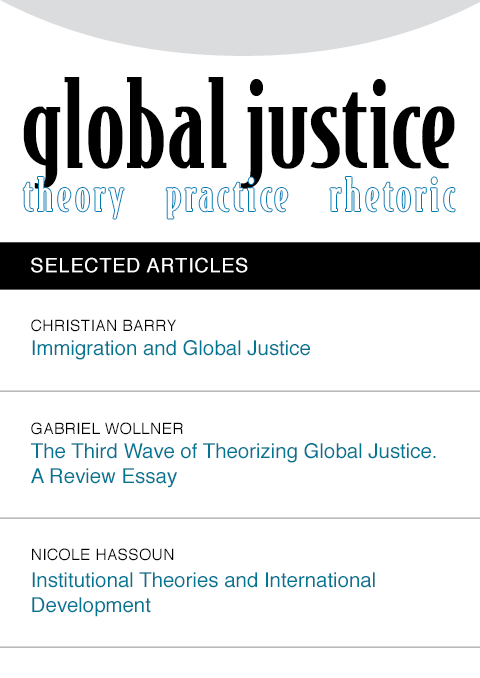Redress for Colonial Injustice: Structural Injustice and the Relevance of History
Abstract
This article analyzes and criticizes the temporal orientation of Catherine Lu’s theory of colonial redress in Justice and Reconciliation in World Politics. Lu argues that colonial historic injustice can, with few exceptions, justify special reparative measures only if these past injustices still contribute to structural injustice in contemporary social relations. Focusing on Indigenous peoples, I argue that the structural injustice approach can and should incorporate further backward looking elements. First, I examine how Lu’s account has backward-looking elements not present in other structural injustice accounts. Second, I suggest how the structural injustice approach could include additional backward-looking features. I presuppose here, with Lu, that all agents connected to an unjust social structure have a forwardlooking political responsibility to reform this structure, regardless of their relation (or lack thereof) to victims or perpetrators of historic injustice. However, I suggest that agents with connections to historic injustice can occupy a social position that makes them differently situated than other agents within that same structure, leading to differences in how these agents should discharge their forward-looking responsibility and differentiated liability for failure to do so. Third, I argue that Lu obscures the importance of rectifying material dispossession. Reparations, pace Lu, can be justified beyond a minimum threshold of disadvantage. Theorists of settler colonialism and Indigenous scholars show how the dispossession of Indigenous land can be seen as a structure that has not yet ended. I conclude by arguing that rectification can be a precondition for genuine reconciliation.

 Global Justice: Theory Practice Rhetoric (TPR) is a peer-reviewed, open-access e-journal which publishes original research in international political theory, with special emphasis on global justice. We are particularly interested in bridging the gap between political theory, empirical research, and the study of political practices and communication.
Global Justice: Theory Practice Rhetoric (TPR) is a peer-reviewed, open-access e-journal which publishes original research in international political theory, with special emphasis on global justice. We are particularly interested in bridging the gap between political theory, empirical research, and the study of political practices and communication. 


